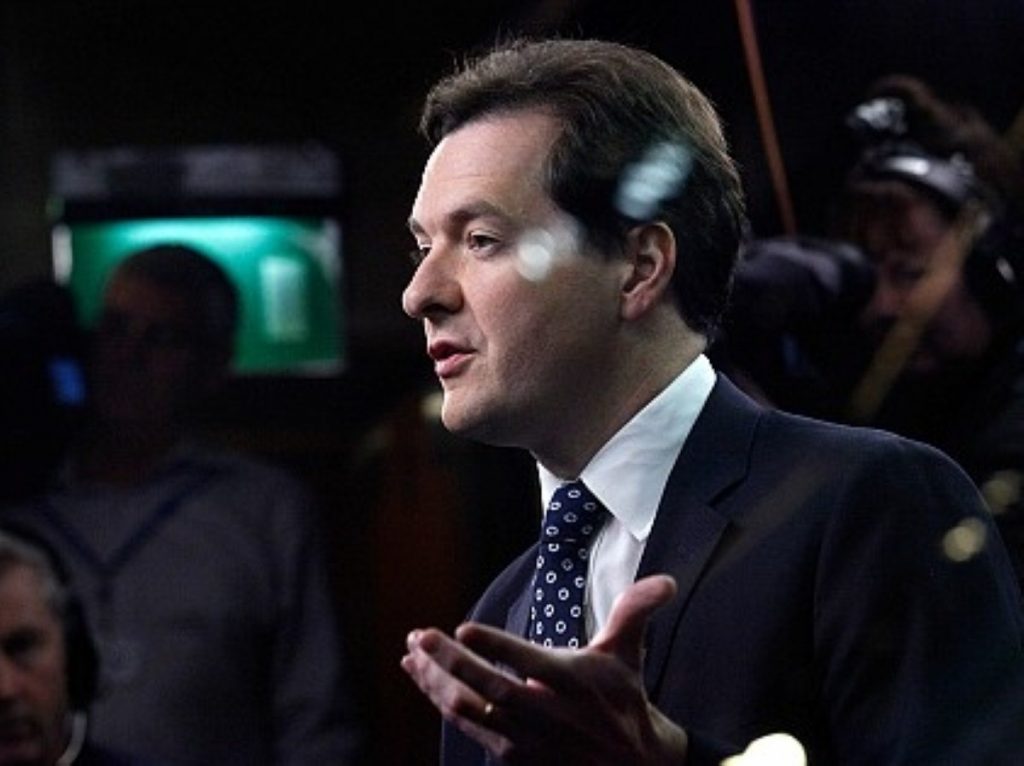GDP analysis: Politicians can afford to be patient
No-one wants to see the uncertain, fragile recovery we've got right now – apart, perhaps, from those who want the coalition to stick together.
By Alex Stevenson Follow @alex__stevenson
It's the issue that will decide the next general election.
David Cameron will never be able to go it alone with an overall Conservative majority after 2015 if he cannot demonstrate the ultimate success of his chancellor George Osborne's rapacious, uncompromising deficit reduction agenda.


Nick Clegg will not even have a chance of remaining his party's leader if he does not win the public's support for the coalition. The Liberal Democrats have the demeanour of a party fleeing from a savage electorate who find themselves cornered at the end of a dark alleyway. Only an economic recovery gives them even the slightest chance of an escape from electoral catastrophe.
It's why today's growth figures, which saw gross domestic product increase by a measly 0.2% in the three months from April to July, will be a source of private dismay for both leaders – and their parties.
We're bumping along the bottom, exactly as predicted. Experts were right that the UK economy wasn't going to leap from its recessionary bid with a spring in its step.
Now we're a year into the coalition's five-year term, we're beginning to realise what those predictions mean in practice. The vulnerabilities are everywhere: a snowstorm in December, hot weather in April. Even the royal wedding is being blamed for slowing down productivity.
These 'special factors' are a fig leaf for the economy's fundamental shakiness. When politicians mention them, the 'excuses' alarm bell should be ringing out loudly in your brain.
Osborne's response to today's figures, that it's "good news" that the economy is still growing, smacks of desperation. As Labour have pointed out, growth would have had to hit 0.8% for the government's 2011 forecasts to still be on track.
The opposition's partisanship is being pursued with the zeal and enthusiasm which only shadow chancellor Ed Balls can muster.
His determination to take the fight to the coalition is, in broadbrush strategic terms, the right one. Painting the spending cuts as part of a broader Tory ideological plan works for him – even if it glosses over the fact that politics and economics don't always fit together neatly.
The economic debate over whether cutting the deficit faster or slower will help the recovery more doesn't have much to do with politics. No-one has a more balanced view of this than Lib Dem Vince Cable, who sat on the fence before the election by pointing out the pros and cons of each approach. After finding themselves in government, the Lib Dems proved pliable enough to convince themselves there was really only one option. It felt like a gamble in 2010. It feels even more like a gamble in 2011.
One year in, and the script remains unchanged. Ministers know the economy has to improve. Luckily for them, they've still got 80% of their time in power left for this to happen. The boost which can be expected next year from the Olympics, arguably a Labour achievement, couldn't come at a better time.
However gloomy things may appear today, there's still more than enough time for voters to forget about the current uncertainty – assuming it can become a thing of the past, that is. A shaky economy now, therefore, is another reason for both coalition partners to be grateful they've tied themselves to the mast – and each other – until 2015.

